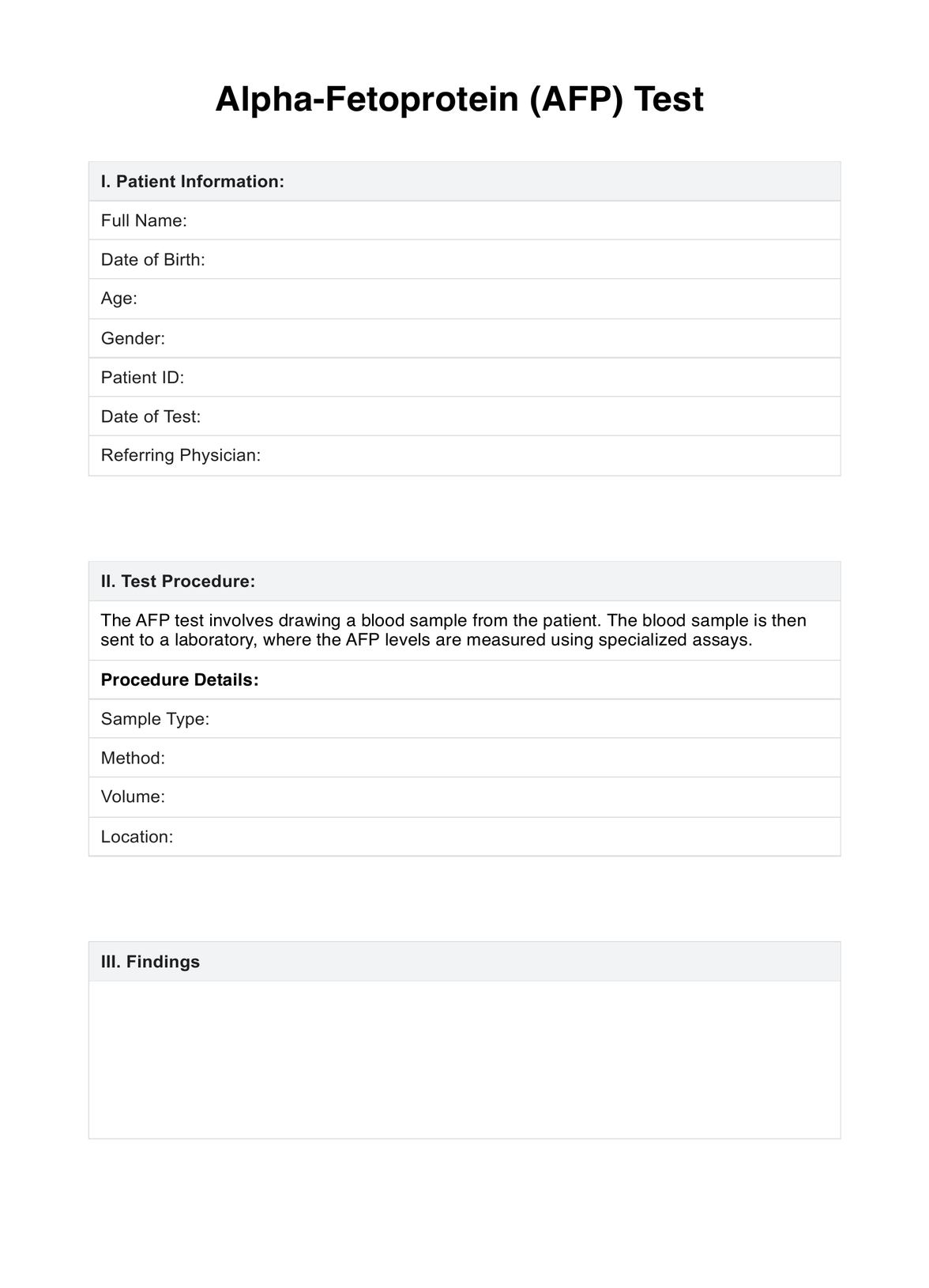The AFP test is commonly requested by obstetricians for pregnant women, hepatologists, gastroenterologists, and oncologists for patients exhibiting symptoms suggestive of liver pathology or certain cancers.

Alpha-Fetoprotein
Dive deep into the nuances of the Alpha Fetoprotein Test, its application, interpretation, and significance. A must-read for healthcare professionals.
Use Template
Alpha-Fetoprotein Template
Commonly asked questions
AFP tests aid in prenatal screening for potential birth defects. In adults, they assist in diagnosing liver diseases or monitoring certain cancers.
While the blood draw is swift, taking only a few minutes. However, laboratory analysis and result interpretation can range from a few hours to a few days, depending on the facility and specific circumstances.
EHR and practice management software
Get started for free
*No credit card required
Free
$0/usd
Unlimited clients
Telehealth
1GB of storage
Client portal text
Automated billing and online payments











